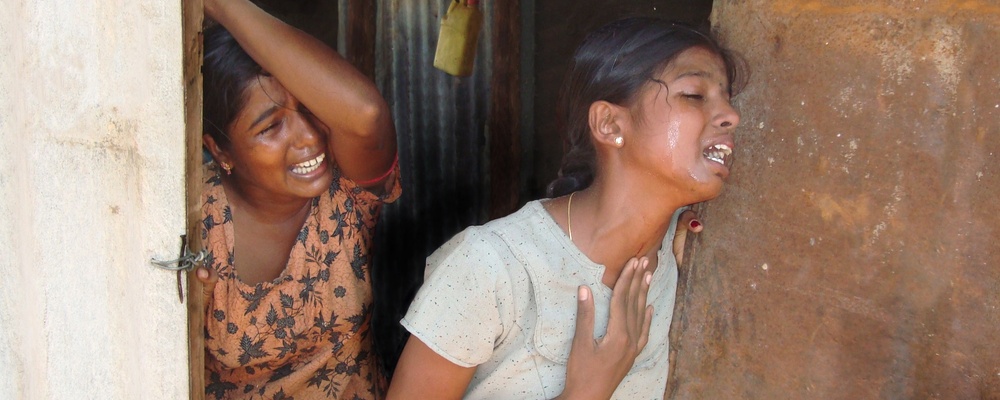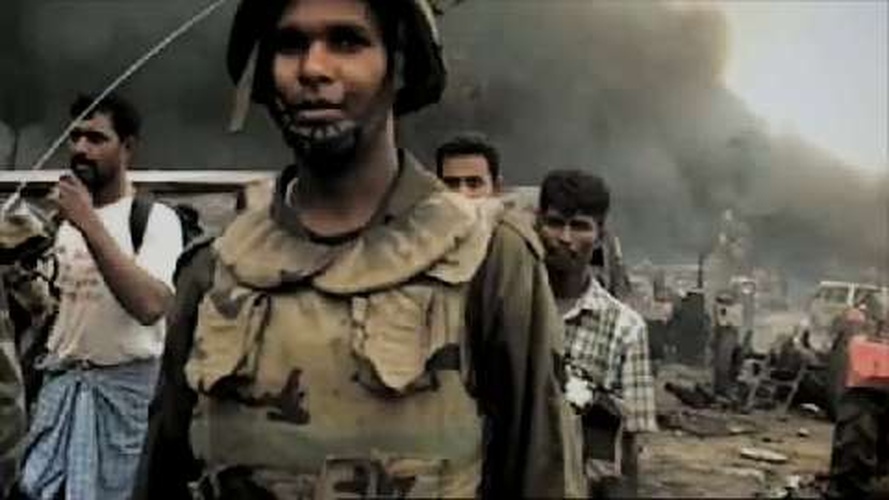SYNOPSIS
Our film reveals the true extent of crimes against humanity in the final weeks of the Sri Lankan civil war - told through eye witness testimony and shocking video evidence recorded by both the victims and perpetrators. While the world looked away, as many as 40 thousand civilians lost their lives in a few bloody months. It is both a call to the conscience of the world, a definitive film of record and an uncompromising indictment of the men responsible for the bloody crimes at the end of the Sri Lankan civil war.
Long Synopsis
In October 2008 an air of deep foreboding hung over Killinochi – the de facto capital of the Tamil homelands of Northern Sri Lanka. The armed forces of the ultra-nationalist Sinhalese government of Sri Lanka were on the move, and the secessionist army of the Tamil Tigers were on the retreat. After a twenty six year revolt – the scene was set for the final awful endgame..
The film is built around a few extraordinary personal stories: The stories of those who survived and talk to us directly in the film - and the stories of those who perished - brought to life through testimony and footage.
Outside Killinochi a young British Tamil Vany Kumar, over visiting relatives, realised she was trapped along with hundreds of thousands of other men, women and children, desperately fleeing the government onslaught.
Benjamin ‘Dixie’ Dix, one of the last nine international UN workers in the Tiger’s de-facto capital of Killinochi, was aware that this was the beginning of the end. When he and his colleagues were ordered out of the region, it meant abandoning the Tamil civilians - many of whom had become friends - who gathered outside the UN compound pleading with them not to leave. It felt like a complete betrayal.
Among those characters we learn of through others are Isaipriya, a young woman who for him symbolises the Tigers. She is a popular presenter and singer on the Tamil Tiger television station and key figure in the Tiger’s propaganda operation. Dixie, who knew her, describes her as a charming, beautiful and gentle young woman who was, nonetheless, and powerful propagandist in defence of the ruthless war waged by the Tamil Tigers, of whom she was an active supporter.
The next time we see her - at the end of the film - is in the final days of the conflict. She is dead, her naked body being filmed by a government soldier as a trophy on his mobile phone. She has been bound, blindfolded and apparently been subjected to sexual assault before being shot in the head.
All of these characters – and their remarkable personal stories - make up the narrative of our film. We follow them as the exodus begins. As death becomes commonplace and starvation the norm, some will not make it out alive; others will be haunted by feelings of guilt, anger and grief for the rest of their lives.
But our film has another central element, some of the most disturbing video evidence of war crimes and crimes against humanity ever seen. Footage that has allowed us to document in a way almost never done before, the day to day horror of this war. Footage recorded by both the victims and perpetrators –viscerally powerful actuality from the battlefield, from inside the crudely dug civilian bunkers and the over-crowded makeshift hospitals targeted by the Sri Lankan military.
We trace responsibility for these crimes. We name the guilty men. And we bring the story up to date. The continuing brutal repression of the Tamil civilians in the northeast. The denial of human rights, sexual violence and economic discrimination.
Finally we ask what should be done. Of how the world – which failed the people of Sri Lanka so badly during the war – must now bring the men responsible to justice or risk a generation of angry disenfranchised young Tamils who believe the only way to achieve justice is by taking the search for it into their own hands.
Outreach Work Supported
Early advocacy at UN and campaign launch in India.



